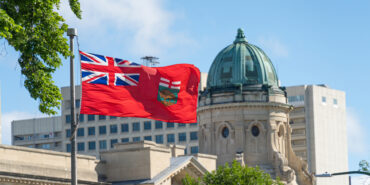Best practices for retail stores during COVID-19
March 20, 2020It is recommended that all retailers review their sanitation procedures and increase their sanitation frequency, especially for high touch surfaces and public areas. Surfaces must be cleaned on a regular basis with an approved detergent. Cleaning removes the physical contaminants that are on a surface. This is followed by rinsing with clean, potable water. Cleaned surfaces must then be sanitized (food contact surfaces) or disinfected (non food contact surfaces). Staff should be trained on how to use and verify the concentration of sanitizers and disinfectants used.
Disinfectants approved by Health Canada will have a drug-identification number (DIN). A list of registered sanitizer and disinfectant products can be found here. Disinfectants and sanitizers can be the same product, but disinfectants are more highly concentrated and require a longer contact time than sanitizers. If disinfectants are used on food contact surfaces, they may need to be rinsed with potable water, whereas sanitizers do not. Public health authorities recommend that retailers confirm with their chemical suppliers that the disinfectants and sanitizers they are using are appropriate for use against COVID-19 and, in the case of grocers, appropriate for use at food premises. It is recommended that food contact surfaces be sanitized, while non-food contact surfaces be disinfected on a regular basis, particularly high-contact areas such as doorknobs, POS devices, or bathrooms.
In the case of suspected illness, employees should be advised to stay at home and use the self-assessment tools available from various provincial governments (linked below where available). Any store areas used by the employee should be closed off, and then cleaned and disinfected and/or sanitized as appropriate.



